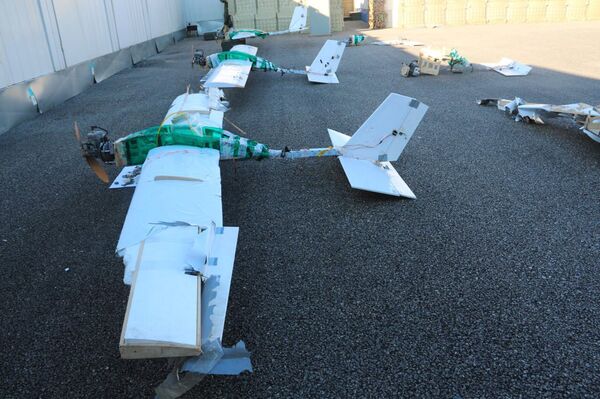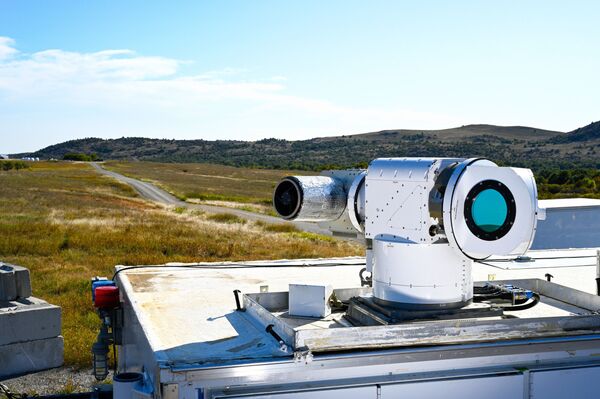According to Military.com, Marine Corps Systems Command has invited defense contractors to submit their ideas for converting the Corps’ new JLTV into an air defense vehicle.
Called the Direct Fire Defeat System, the upgrades could potentially include anti-air missiles, 30-millimeter autocannons and a suite of electronic warfare tools to "detect, track, identify and defeat aerial threats," as the March 27 solicitation note requesting submissions states. Companies have until April 13 to submit proposals.
"This system will provide new and improved capability to mitigate the risk of attacks from Unmanned Aerial Systems and Fixed Wing/Rotary Wing aircraft while maintaining pace with maneuver forces," the document says, according to Military.com.
The JLTV only met its initial operational capability (IOC) requirements last August, but the Marines moved quickly to triple their order of the armored trucks. The JLTV is designed to partially replace the Humvee, which proved vulnerable to improvised explosive devices, as well as the heavily armored but clumsy Mine-Resistant Ambush Protected (MRAP) trucks invented as a response to Humvee shortcomings.
The Marine Corps is now ordering 15,000 JLTVs from Wisconsin-based manufacturer Oshkosh, but it’s unclear how many of them would be modified to fill the anti-air role if the proposal moves forward.
The threat posed by hostile unmanned aerial vehicles has steadily increased in recent years, with experiences in Syria and Yemen demonstrating the need for dedicated, close-in anti-air defenses. During the August 2019 attack on two Saudi oil facilities for which Yemeni Houthi forces claimed responsibility, suicide drones slipped under the protective aegis of the US’ Patriot air defense systems, delivering a devastating blow that temporarily crippled Saudi oil production.

As Sputnik has reported, the US military once had extensive short-range air defense systems (SHORADS), but after the end of the Cold War, the Pentagon shifted toward longer-range strategic threats. Systems like the Patriot, Ground-Based Midcourse Defense (GBMD) and Terminal High-Altitude Area Defense (THAAD) all focused on downing high-trajectory, exo-atmospheric weapons like ballistic missiles, leaving US forces without a workable, close-in air defense system.
In response, the Army pushed forward in adopting the “Howler” system, which combines the Coyote loitering muntion - itself a kind of “suicide drone” - with the KuRFS Ku-band short-range radar to produce a point air defense system. The Pentagon also laid out anti-drone defenses as one of its top priorities in 2020, with one Pentagon official saying it hoped to produce “three to five” counter-drone systems for various service branches, Sputnik reported.
Some of those proposed systems include the DroneDefender and Silent Archer electronic warfare systems, both of which create no-go zones for drones by blocking signals between them and their remote controllers, causing the aircraft to crash.
Defense contractor Lockheed Martin has also built an Advanced Test High Energy Asset (ATHENA) prototype laser system, which in a November 2019 test demonstrated “full kill-chain performance” capability, the contractor noted. Northrop Grumman also indicated earlier this year the contractor was working on an airburst weapon, similar to the World War II-era flak cannons, to shoot down drones.
Military.com noted the Marines also already use the Light Marine Air Defense Integrated System (LMADIS), which reportedly jammed an Iranian drone in the Strait of Hormuz last year, although Tehran has denied the drone was shot down, as Washington has claimed.
The US Army will also be buying substantial numbers of the JLTV, with 10,760 under contract for manufacture, Defense News reported. According to USNI News, the British Army is also interested in acquiring 2,747 JLTVs through the Pentagon’s Foreign Military Sales (FMS) program.


